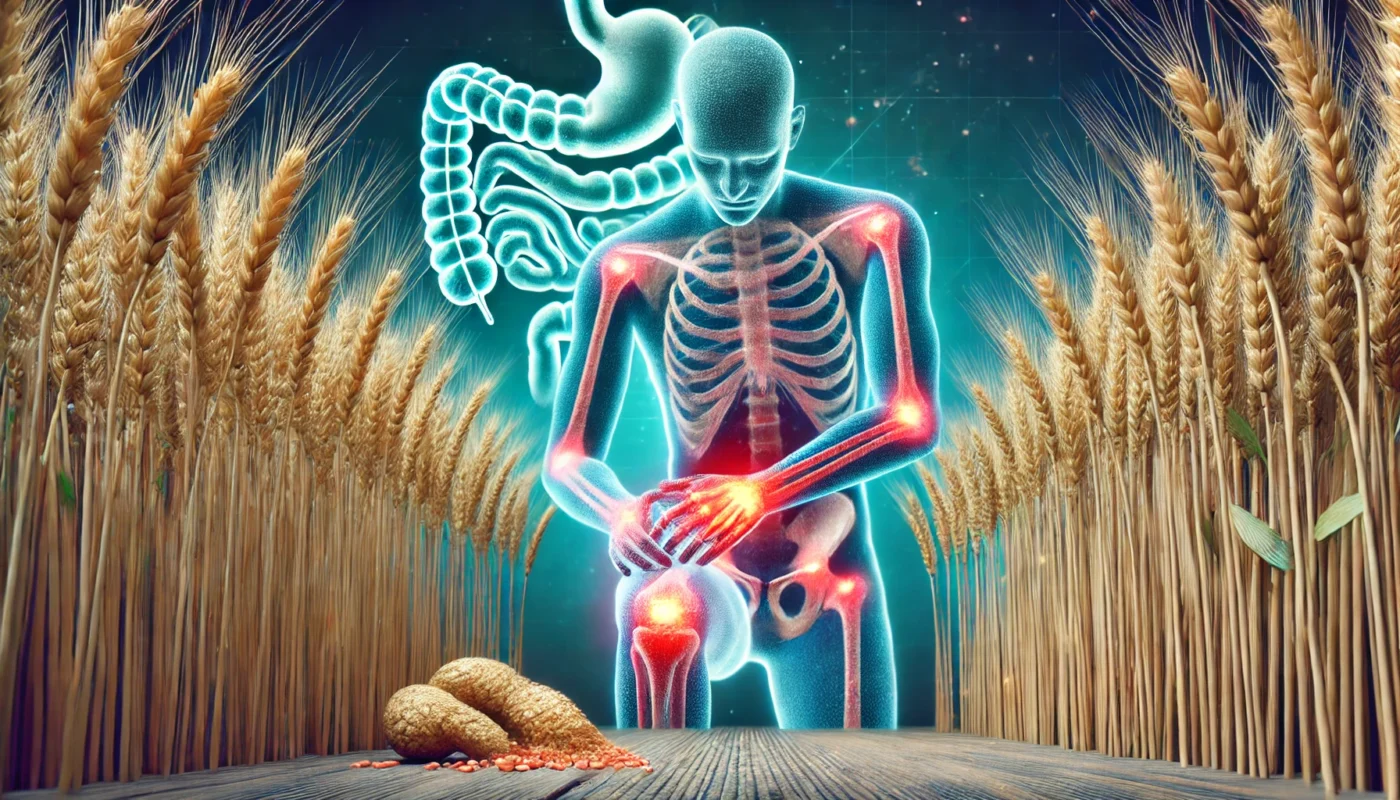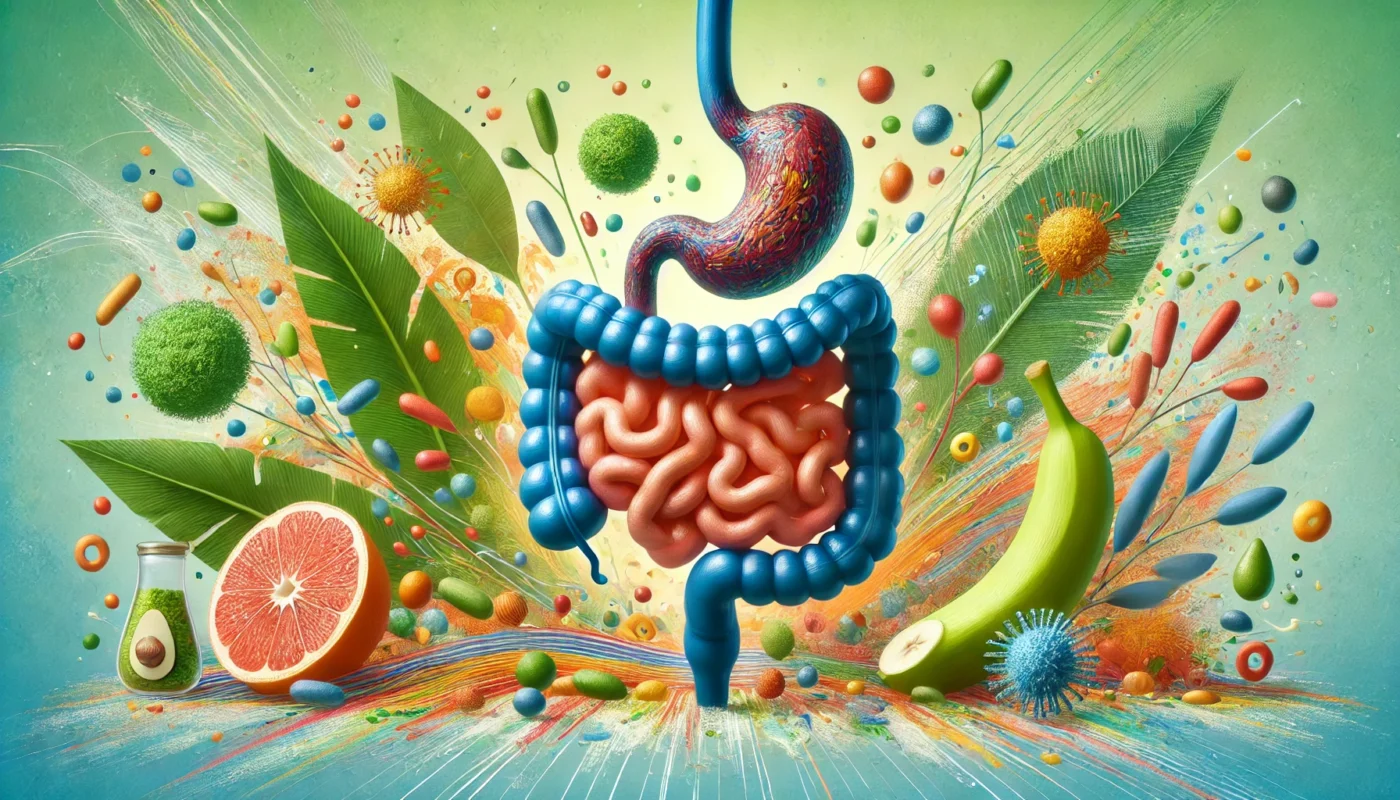Inflammation is the body’s natural response to injury, infection, or harmful stimuli. In short-term scenarios, it’s a beneficial process that promotes healing and recovery. However, when inflammation becomes chronic, it can lead to various health issues. Chronic inflammation is often subtle, quietly affecting the body’s systems over time, and can be influenced by lifestyle factors, including diet.
Tag Archives: nutrition tips
An anti-inflammatory diet focuses on consuming foods that reduce inflammation and avoiding those that trigger it. The cornerstone of this diet is a variety of whole, nutrient-dense foods. Let’s break down the main components.
Joint inflammation is a common health concern. It’s often linked to arthritis, a condition affecting millions worldwide.
Diet is increasingly recognized as a key factor in managing joint inflammation. Among various dietary components, wheat, specifically gluten, has come under scrutiny.
The question arises: does wheat cause joint inflammation? This article aims to explore this complex issue.
We’ll delve into the biological mechanisms of gluten’s impact on the body. We’ll also examine the difference between celiac disease, wheat allergy, and non-celiac gluten sensitivity.
The potential link between wheat consumption and joint inflammation is a topic of ongoing research. We’ll review the current scientific evidence, acknowledging the need for further studies.
Personal anecdotes of arthritis improvement on a wheat-free diet add another layer to the narrative. We’ll share these stories, while emphasizing the importance of individual dietary responses.
Finally, we’ll provide practical advice for those considering a wheat-free diet. We’ll also discuss the broader implications of dietary choices on joint health.
Join us as we navigate the intricate relationship between wheat and joint inflammation. This exploration aims to empower you with knowledge, enabling informed decisions about your health.
Living with inflammatory bowel syndrome (IBS) or inflammatory bowel disease (IBD) can be challenging. These conditions can cause discomfort, disrupt daily activities, and significantly impact quality of life.
Understanding the role of diet in managing these conditions is crucial. It can help alleviate symptoms, reduce flare-ups, and promote overall gut health.
This comprehensive guide aims to provide practical, evidence-based advice on the best diet for inflammatory bowel disease and syndrome. It will help you identify foods that can either soothe or trigger your symptoms.
We’ll delve into the science behind the inflammatory bowel syndrome diet. We’ll also explore the potential benefits of certain foods and the importance of hydration.
We’ll discuss the role of probiotics and prebiotics in gut health. We’ll also touch on the impact of lifestyle factors on IBS and IBD.
This guide will provide practical tips for meal planning and preparation. It will also emphasize the importance of personalized nutrition and consulting professionals.
Our goal is to empower you with knowledge and support. We want to help you navigate your journey towards better health and improved quality of life.
In the quest for optimal health, diet plays a pivotal role. It’s not just about weight management or physical fitness.
Diet can also influence inflammation in our bodies. This is where the ‘itis diet’ comes into play.
The term ‘itis’ is often associated with inflammation. Conditions like arthritis, gastritis, and dermatitis all involve inflammation.
The itis diet is designed to combat this. It’s a dietary approach focused on reducing inflammation and promoting overall health.
This guide will delve into the principles of the itis diet. We’ll explore its benefits and how it can be practically applied for improved wellbeing.
We’ll also compare the itis diet to the Mediterranean diet, particularly for managing rheumatoid arthritis. A detailed food list will be provided to help you implement the diet.
Whether you’re a fitness enthusiast, a health enthusiast, or a medical patient, this guide is for you. It’s time to take control of your health through the power of diet.
Let’s embark on this journey to understanding the itis diet. Your path to better health starts here.
In the realm of health and wellness, the question often arises: does dairy cause inflammation? This query is not without reason. Dairy products are a staple in many diets, yet their impact on our health is a topic of ongoing debate.
Inflammation, a natural response of our immune system, can be a double-edged sword. While it helps protect our bodies from harm, chronic inflammation can lead to various health issues. Hence, understanding the link between our diet and inflammation is crucial.
Dairy products, from milk to cheese, are nutrient-rich. They provide essential vitamins and minerals, including calcium and vitamin D. However, some research suggests that dairy might also contribute to inflammation in certain individuals.
This article aims to explore the complex relationship between dairy and inflammation. We’ll delve into the science behind this link, examining the components of dairy that might trigger inflammation. We’ll also discuss individual differences in dairy tolerance and how they might affect inflammatory responses.
Whether you’re a fitness enthusiast, a health enthusiast, or a medical patient, this comprehensive guide will provide you with valuable insights. By the end, you’ll have a clearer understanding of dairy’s role in inflammation and how to make informed dietary choices for your health and wellbeing.
Let’s embark on this journey of discovery together, shedding light on the intriguing link between dairy and inflammation.






